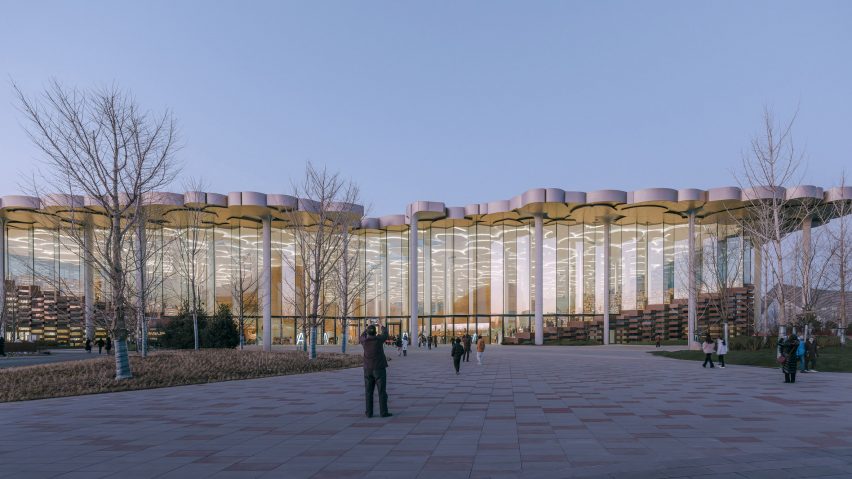
Snøhetta creates library to emulate feeling of "sitting under a tree"
International studio Snøhetta has completed Beijing City Library in China, a glass-lined building filled with towering tree-like columns and rooms disguised as hills.
Located in Beijing's Tongzhou district, the library was designed by Snøhetta to "reinstate the library's relevance in the 21st century" and aims to offer a "new vision" for the typology.
Its design is based on natural landscapes and prioritises helping visitors to connect to the outside, enticing them away from their screens.
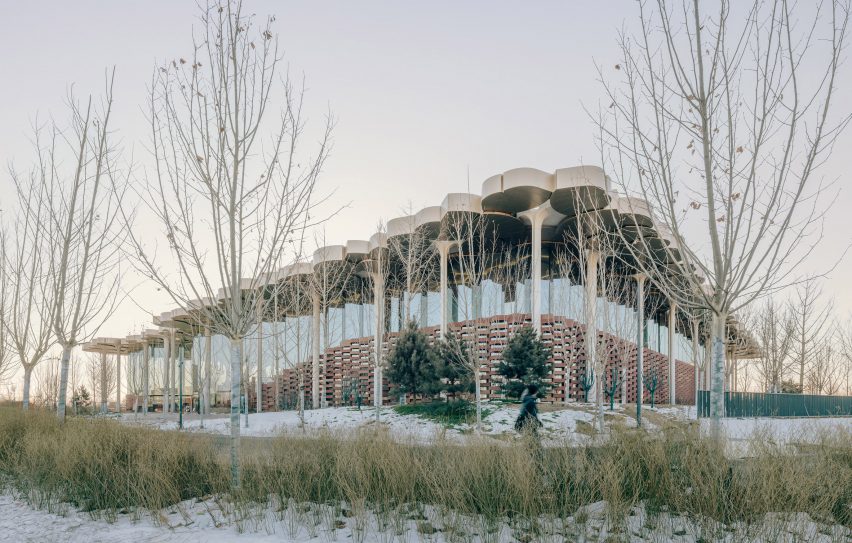
"The terraced landscape and tree-like columns invite visitors to lift their gaze and focus at a distance, taking in the bigger picture," said Snøhetta partner Robert Greenwood.
"This is a place where you can be sitting under a tree, reading your favorite book", says he continued.
"The Beijing City Library has an intergenerational quality about it, where you would pass on your stories to children and introduce them to the titles you've loved.”
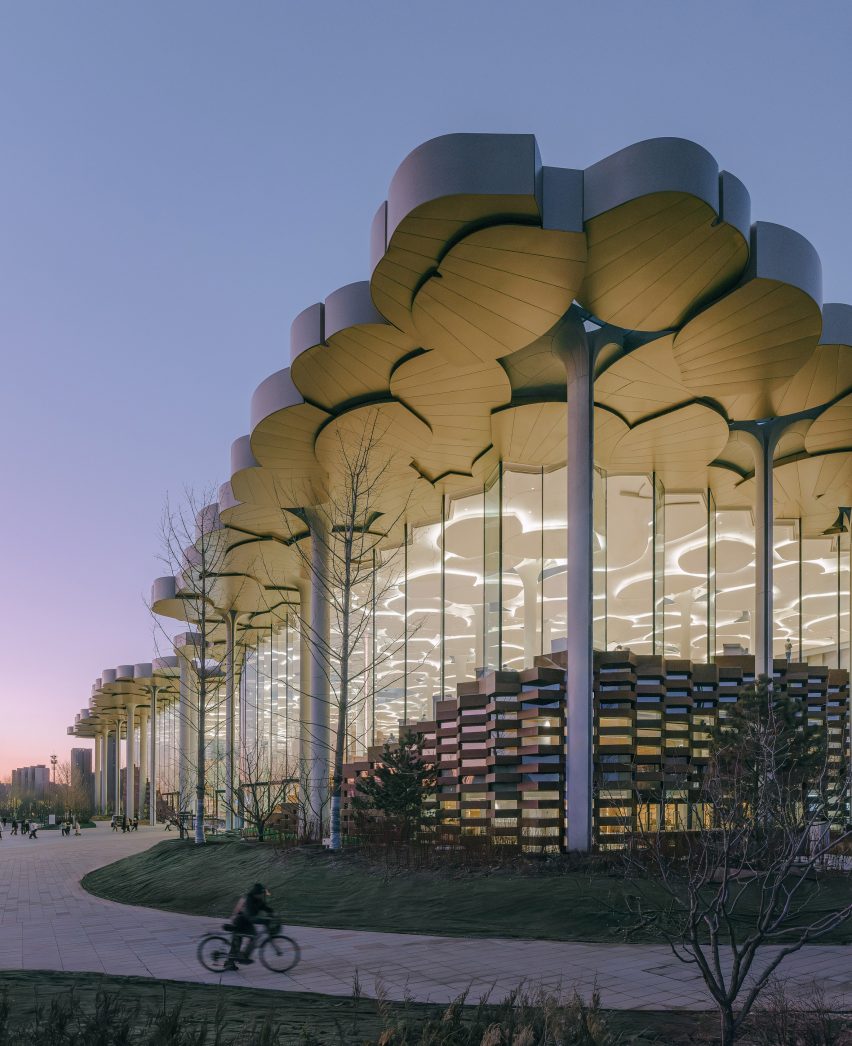
Beijing City Library was publicly revealed in 2022 after being selected as the winner of an international competition in 2018. It has been completed by Snøhetta in collaboration with local studio ECADI.
According to the Snøhetta, it is one of three new major cultural buildings in Tongzhou that are hoped to transform the district into "a lively arts and cultural destination".
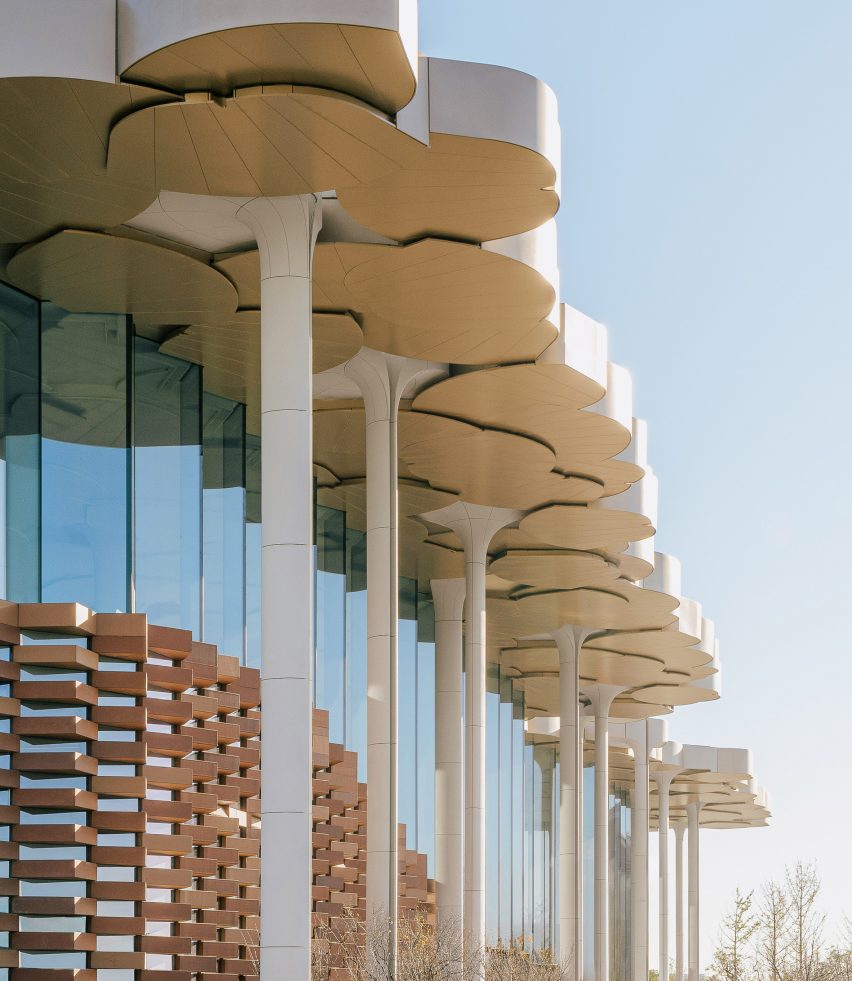
The heart of Beijing City Library is Valley, a 16-metre-tall atrium filled with a series of hill-like mounds that are lined with tiered seating, stairs and bookshelves. A winding walkway runs through its centre.
It is intended to evoke the nearby Tonghui river and serves as the library's main circulation space, linking its north and south entrances.
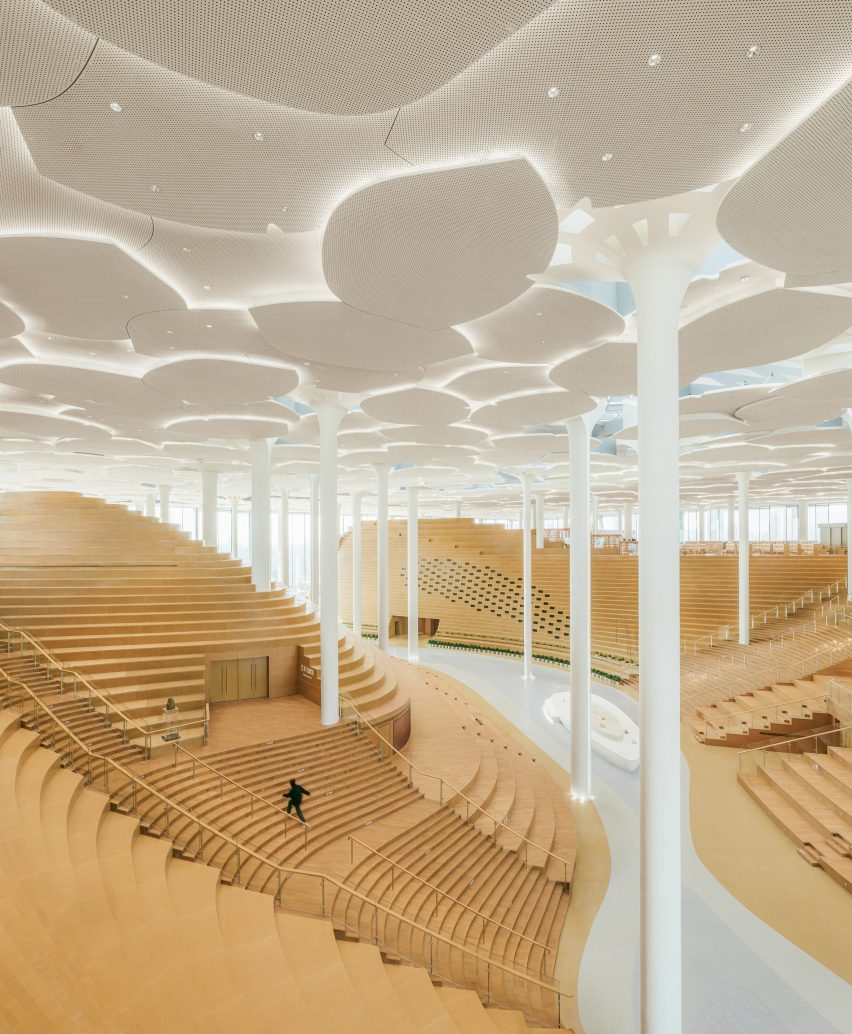
"The terraced hills rising from the Valley are designed to create a sculpted interior landform that serves as the ground, seating, and shelving – an informal zone with opportunities to relax, talk, or read quietly, all while staying connected to the larger space," said Snøhetta.
Beneath the hilly mounds are a series of private areas for reading and conferences, and parts of the mounds are flattened to house tables. Beijing City Library also incorporates spaces for performances and book restoration.
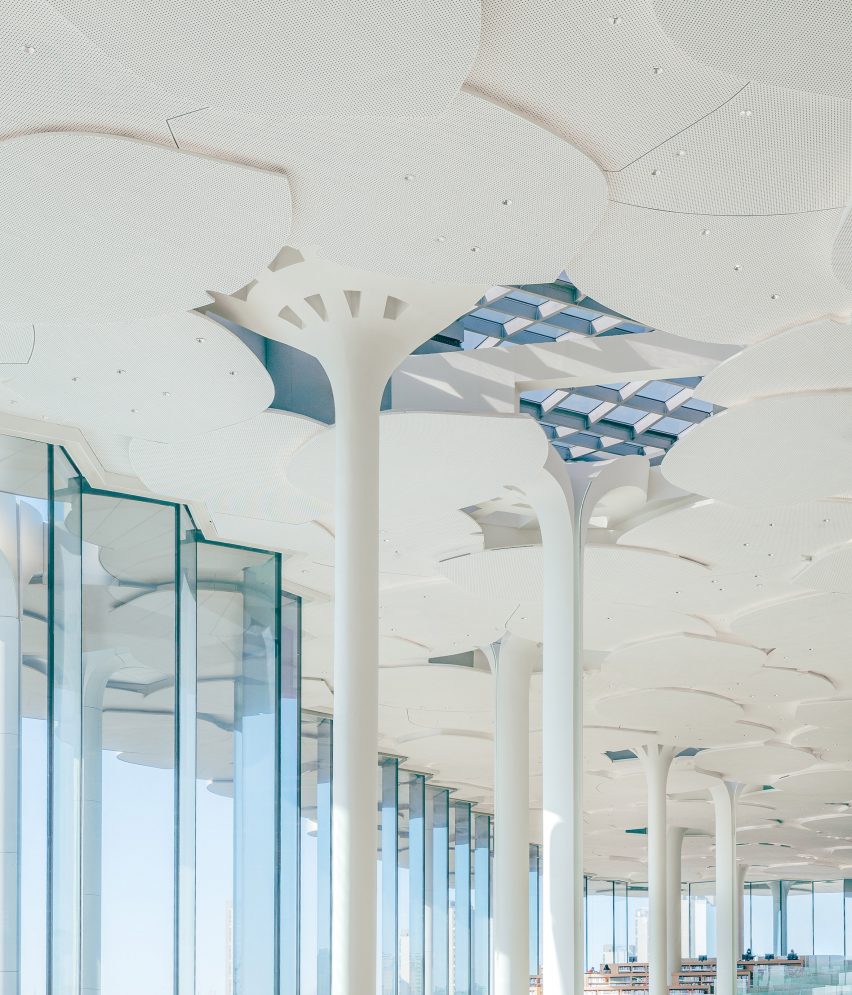
One of the library's most notable details is its tall, slender columns that "mushroom into flat panels" at their peak to support the roof.
Snøhetta modelled these on the leaves of a ginkgo tree – a 290-million-year-old species that is native to China – to form a ceiling that resembles a canopy.
The columns have a modular design, developed to reduce material waste and integrate technologies such as lighting, acoustics, and rainwater collection.
Outside, real ginkgo trees have been planted at the entry points, framed by the glass walls that aim to "further enhance the connection with nature".
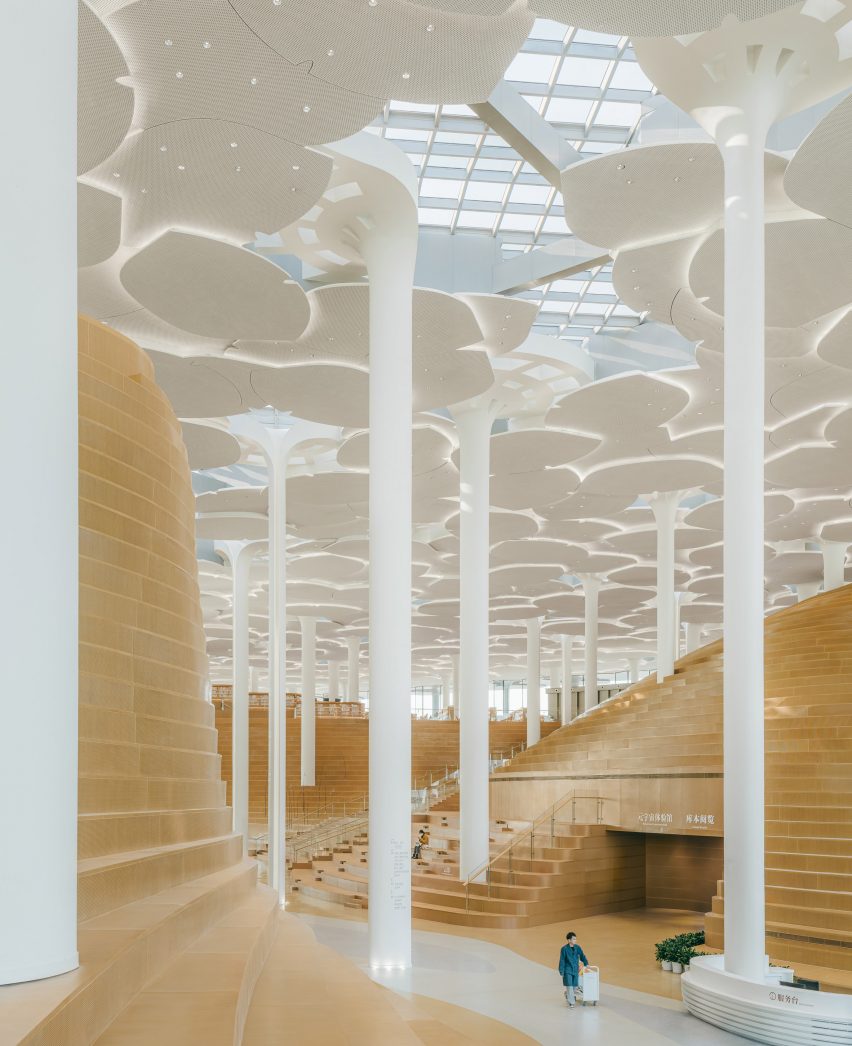
Completing the project are roof overhangs to reduce solar gain on the glass walls, which Snøhetta said are "currently the largest load-bearing glass system in China".
Meanwhile, the roof has integrated photovoltaic (BIPV) construction elements to generate renewable energy. The overall design has achieved China's GBEL Three Star – the highest rating in the green building certification.
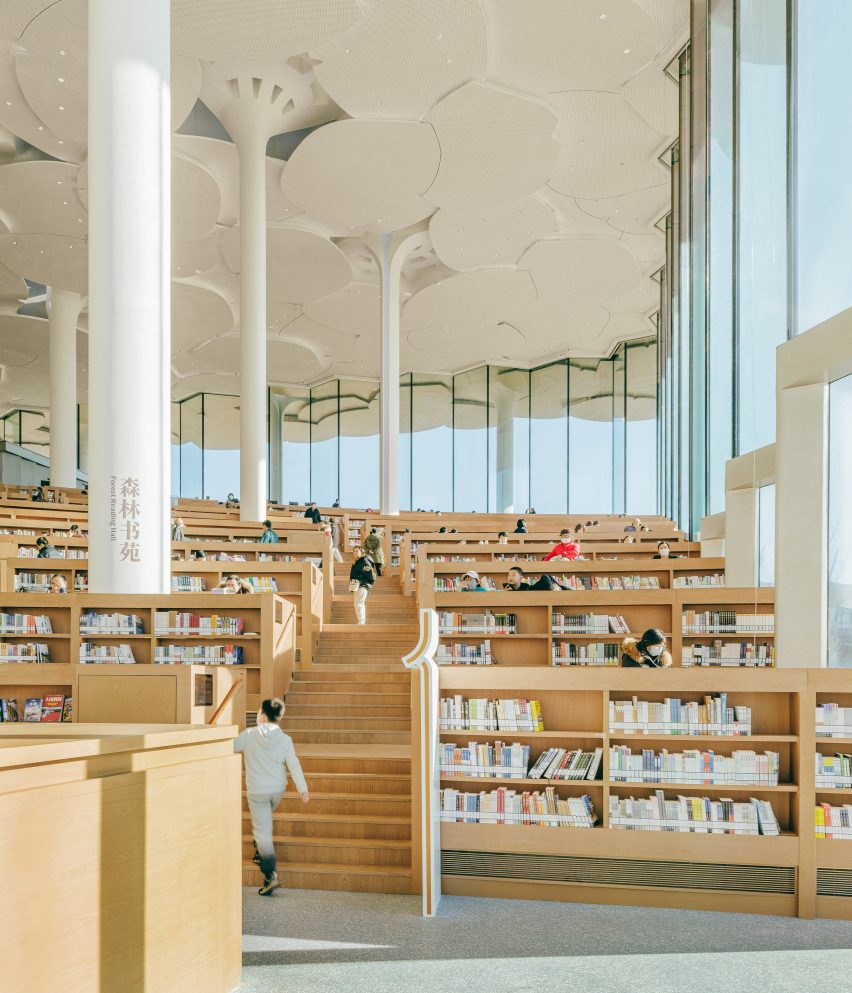
The studio concluded that it hopes the project can help restore the importance of libraries as community spaces, rather than "a mere repository of books".
"It is the love people have for books that has made libraries survive the digital age and hold new potential to give back more to the city and its public," said the studio's co-founder Kjetil Trædal Thorsen.
"It is up to us to reinterpret the relationship between body, mind, and the surroundings to rekindle the joy of reading away from the screen. Libraries are here to stay.”
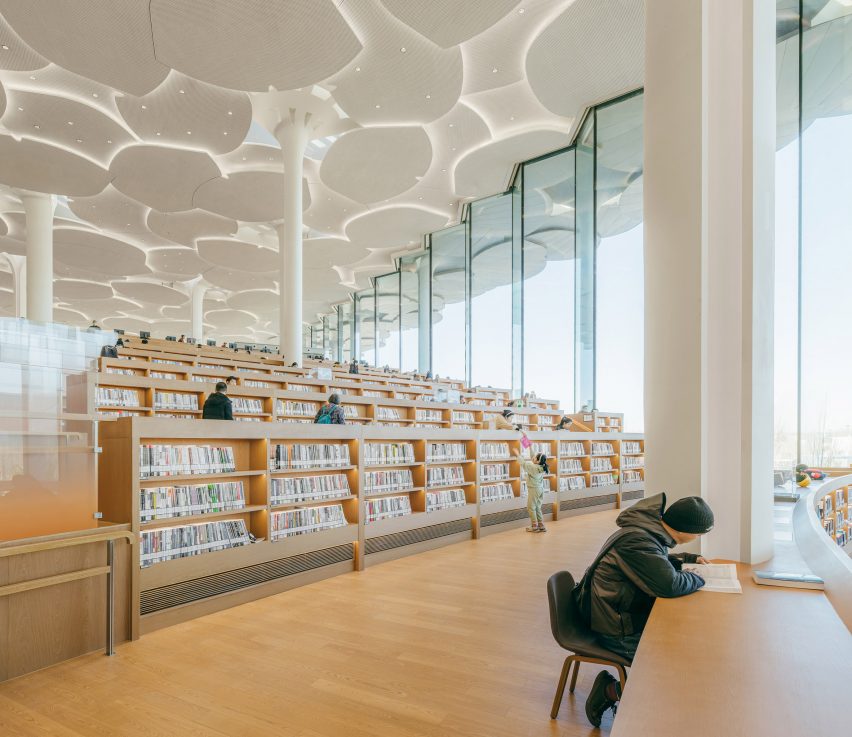
Snøhetta was founded by Thorsen with architect Craig Dykers in 1989. The studio specialises in both architecture and design.
Its first library was the Bibliotheca Alexandrina in Egypt, and it has since also designed the Charlotte Mecklenburg Library and Far Rockaway Library in the USA.
The photography is by Yumeng Zhu.
Project credits:
Architect: Snøhetta
Client: Beijing Planning and Natural Resource Bureau
Executive architect: ECADI
Structural, geotechnical, and civil engineer: ECADI
Cost consultant: ECADI
Building sustainability engineer: ECADI
Facade & BMU engineer: Eckersley O'Callaghan, Meinhardt
Lighting designer: ECADI
Main contractor: China Railway Construction Engineering Group